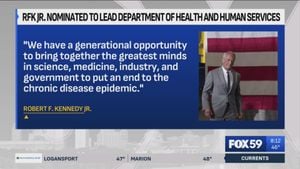The automotive industry is at the brink of monumental transformations fueled by regulatory mandates and shifting consumer preferences, with the Zero Emission Vehicle (ZEV) mandate marking one of the most significant changes yet. Launched recently by the UK government, this initiative aims to accelerate the transition to electric and hydrogen-powered vehicles, reflecting the urgency of combating climate change and promoting sustainability.
Initially, the UK government aimed to ban new internal combustion engines (ICEs) by 2040, but this deadline has been brought forward. Now, by 2030, the goal is to have every new car sold be either electric or hydrogen-powered. And the ZEV mandate is set to enforce these requirements more strictly, with manufacturers required to achieve increasing quotas of e-vehicle sales each year.
The specific requirements set forth by the ZEV mandate are nothing short of challenging: starting next year, car manufacturers must meet at least 22% of their sales from electric vehicles, with quotas rising to 28% by 2025, eventually reaching 52% by 2028 and 80% by 2030. By 2035, the vision is to have purely battery-electric vehicles dominating the market.
Car brands are already responding to these targets. Companies like Peugeot and Vauxhall have rolled out electric variants of their complete line-up, positioning themselves favorably against the ZEV requirements. On the other hand, brands like Toyota, with its singular bZ4X, face potential fines as these regulations tighten.
And what about the typical consumer? Well, the ZEV mandate primarily impacts new vehicle sales, meaning individuals will still be able to buy and operate used petrol or diesel vehicles after the mandate fully takes effect. Nonetheless, as more manufacturers discuss reducing their production of combustion vehicles to meet electric demand, the availability of traditional cars might dwindle.
Promises made by car manufacturers to transition to electric solutions vary across the board. Some like Volkswagen and Jaguar firmly commit to phasing out fossil fuels, yet others such as Lotus, Bentley, and Mercedes face hurdles. They have either slowed their electric transitions or shifted focus to plug-in hybrids rather than going all-in on electric vehicles. At Ford, hesitancy arises from slower-than-expected sales of EVs and infrastructure shortcomings.
Meanwhile, the classic car segment of the automotive industry has raised alarms over its own challenges. The sector is experiencing remarkable demand alongside a severe shortage of qualified technicians. With increasing workloads expected to persist beyond 2025, organizations like Clayton Classics are focusing on attracting fresh talent to support the growing needs of classic car enthusiasts. With the sector valued at £18 billion, its sustainability hinges significantly on the ability to recruit skilled professionals.
To make matters more complex, the automobile sector's transformation is accompanied by significant innovations showcased at events like Automechanika Shanghai 2024. Taking place from December 2-5 this year, the event promises to highlight over 400 speakers addressing various aspects of automotive technology, sustainability, and market adaptability. With technological advancements impacting every part of the automotive supply chain—research and development, production, distribution, and aftermarket services—the focus spans from new energy vehicles to enhanced connectivity solutions.
Among notable discussions slated for this year’s Automechanika are the International Automotive Industry Conference and the Automotive Aftermarket Summit. These platforms will evaluate the industry’s future, address workforce challenges, and promote collaborative problem-solving strategies.
The growth of new markets and innovative business models is reflected through platforms promoting talent development and stressing the importance of high-quality education systems relevant to automotive needs. The emphasis on nurturing high-tech talent mirrors the ever-evolving requirements of the automotive job market.
Panel discussions featuring industry leaders from companies like Bosch, eBay, and Michelin will cover multifaceted topics from vehicle connectivity to advancements within the tyre industry, as electric vehicles soar and traditional consumer vehicles evolve.
The combined pressure of environmentalism, advancing technology, and consumer expectations is reshaping the automotive industry. It remains to be seen how companies will balance transitioning their existing business models to embrace electric and hydrogen vehicles fully. While regulatory mandates like the ZEV push for immediate change, traditional markets must rethink their strategies to stay relevant, leading to innovation but also anxiety for automotive workers and foot traffic on lots globally.
Overall, embarking on the green path entails addressing numerous industry-wide challenges, from planning production schedules and creating new workforce initiatives to managing customer expectations amid uncertainty. The ultimate goal remains clear: developing vehicles and business models sustainable enough to endure the transformations on the horizon.



